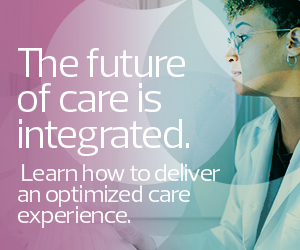Understanding How AI Can Impact Health Outcomes
The ability to train incoming healthcare workers to embrace and interrogate this new technology will better determine its influence and how it can be used in a positive way to promote health outcomes, says Dr. Aditee Narayan, associate dean for curricular affairs at Duke University School of Medicine.
“It is important to tie education on AI to the reasons that folks went into medicine in the first place,” she says.
For medical schools to be most effective in teaching future physicians about AI, they must support the clinical and research missions of the institution in the AI space, she adds.
“What will work best is to see the ways that our institution is going to prioritize the use of AI in clinical operations and patient care, and then to align our curricular additions with those new initiatives,” Narayan says.
DISCOVER: Expert guidance can help your healthcare organization reach its AI goals.
Demystifying the AI Models That Affect Healthcare
At the University of Texas at San Antonio, students can choose to take a break from the medical program to spend a year in an immersive experience in the AI field. They take foundational courses in AI and elective courses based on their specialty focus.
Physicians need a good understanding of the AI models being used in different clinical scenarios, says Dr. Dhireesha Kudithipudi, founding director of the university’s MATRIX AI Consortium and leader of the team that developed the AI courses for the unique doctor of medicine/Master of Science dual-degree program launched by the university last year.
“Whether it is in anomaly detection, image processing or decision-making, students need an understanding of where the models are coming from and what types of AI models are being used in these scenarios,” Kudithipudi says.
From her perspective, students must also understand how AI models are used to develop certain solutions.
“Quite often, these AI models are not designed in an inclusive way, or they have some hidden biases in the models,” she says. “In those contexts, human intervention becomes important to mitigate the blind spots that AI has and avoid these biases being translated into actual impact.”
UP NEXT: Discover how to pick the right AI solution for your healthcare organization.











